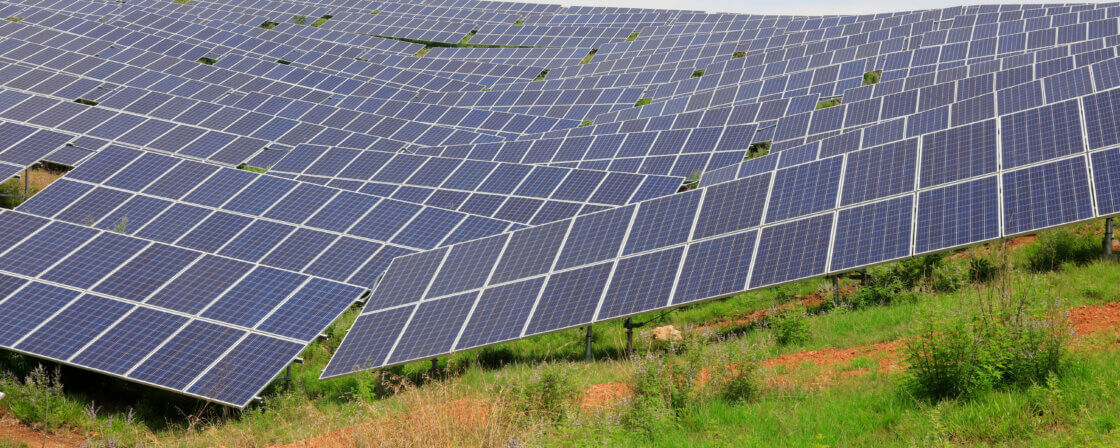Entrepreneur and entrepreneurship – definition
An entrepreneur is a natural or legal person who independently runs a business. This consists in the continuous pursuit of an activity (for example, the provision of services or the sale of goods) with the aim of making a profit. An entrepreneur acts on his own account, bears responsibility for the results of his work and takes the risks involved.
Subsidies for companies vs. subsidies for self-employed persons
The available subsidies and the conditions for applying for them sometimes differ based on whether the company applies for them as a legal entity or as a self-employed individual. For the sake of clarity, let’s summarise how they actually differ:
Company (legal entity):
- This is a business run by a separate legal entity, such as a joint stock company (a.s.) or a limited liability company (s.r.o.).
- A company has its own legal personality separate from its founders or owners. This means that if Mr. Novotny forms an LLC, the company becomes a legal entity that has the right to enter into contracts, own property and be liable for its obligations, separate from Mr. Novotny’s personal property.
- The founders or shareholders have limited liability for the debts and obligations of the company.
The company as such is just a name under which the entrepreneur is registered in the commercial register. In common parlance, however, it is used to refer to a business company. In this article, we treat the term in the same way.
Self-employed:
- This is a form of business where an individual runs a business on his own account and responsibility.
- A self-employed person does not have a separate legal personality as a company = acts as a natural person. This means that in this case Mr Novotny is himself self-employed and acts and acts in business as a natural person. Therefore, all his personal and business affairs are connected, whether in terms of property, liability or rights.
- A sole trader has full personal liability for debts and liabilities incurred in connection with his business.
Are you solving a similar problem?
Do you need legal help in business?
Don’t have time to look for a lawyer for your company every time? Arranging his time, catching up with him and dealing with billing? Or do you even need to have an attorney available at all times? An affordable attorney is available to you.
I want to help
- When you order, you know what you will get and how much it will cost.
- We handle everything online or in person at one of our 6 offices.
- We handle 8 out of 10 requests within 2 working days.
- We have specialists for every field of law.
Subsidies for entrepreneurs are provided mainly by the European Union and the Ministry of Industry and Trade. They are often targeted at small or medium-sized enterprises and sole traders. Let’s take a look at the most important subsidies you can get this year:
OPTAK subsidies
The OPTAK subsidy (Operational Programme of Technologies and Applications for Competitiveness) is currently one of the most important subsidy programmes for various business sectors. The programme is funded by the European Union. Its main objective is to increase the added value and productivity of SMEs, to support the development of innovative firms and key skills, and to facilitate the transition to a sustainable and digital economy.
OPTAK is divided into six areas. Each area includes specific activities focusing on different aspects of entrepreneurship:
- Research, Development, Innovation and Digitalisation: This area consists of supporting industrial research and the translation of research results into practice. It includes subsidies for building and developing business infrastructure for R&D, digitisation and automation. A number of grants are also aimed at fostering cooperation between business and academia to promote joint research and development.
- Entrepreneurship and competitiveness: Aims to support the market position of enterprises, facilitate access to credit, etc. Currently, grants are available in this area to support participation in international fairs and events, renovation of brownfield sites to support tourism and grants for the purchase of equipment to support digitisation and automation.
Brownfield refers to neglected, unused or abandoned land or property that has been used for industrial, agricultural, military or other commercial activities in the past.
- Digital infrastructure: this area emphasises the modernisation and expansion of digital infrastructure and support for more secure data collection and monitoring. For example, last year it offered a subsidy for high-speed internet.
- Low carbon economy: The aim is to reduce the energy intensity of business buildings and processes, support the construction of renewable energy sources, and modernise and build energy systems with the implementation of smart elements. This includes, for example, popular subsidies for photovoltaics and other renewable energy plants.
- Resource efficiency: This area focuses on reducing water consumption in company operations, water reuse, innovative technologies for better recycling in industry, etc.
- Financial instruments: The last area consists of providing business loans for business development. Currently, this includes, for example, interest-free loans for the construction of photovoltaics.
Tip for article
Unfortunately, subsidies are also associated with subsidy fraud. Find out where to look for information about grants and what to do if you suspect grant fraud.
How to apply for an OPTAK subsidy
A carefully prepared business plan is the key to successfully obtaining a grant. This should include clearly defined objectives, a financing strategy and an implementation plan including project phasing. The size of the business, which is based on the number of employees, the amount of annual turnover and the value of assets, must also be determined before submitting an application.
The application for support itself is submitted through the ISKP21+ information system, where all subsequent communication also takes place. To complete the application, it is necessary to follow the rules for applicants and beneficiaries, which are specific to each call.
The application is followed by the evaluation process. This includes a formal check by the Agency for Enterprise and Innovation and a substantive assessment by the selection committee of the Ministry of Industry and Trade. For some calls, the procedure is simplified so that the formal check is followed immediately by the grant decision. Once the application is approved, you will receive a grant decision, which sets out the conditions for funding and the rules for implementing the project.
Guarantee programme
The Guarantee Programme is designed to support small and medium-sized enterprises. Its aim is to increase the accessibility and availability of finance for these enterprises, while strengthening their global competitiveness. In practice, this means that the state (through the National Development Bank) partially guarantees a loan from a bank, making it easier for entrepreneurs to obtain the money needed for growth or operations.
The loans covered by the guarantee can be used, for example, to acquire and upgrade assets such as buildings, machinery or land. They can also be used to purchase intangible assets such as licences or software. In addition, companies can finance current operating expenses.
The guarantee covers up to 70 % of the amount borrowed and can be granted for a period of up to 7 years (up to 10 years for real estate projects). The interest rate, the repayment period and any collateral (e.g. pledge of assets) are agreed directly between the company and the lending bank.
In order to benefit from the programme, you must meet certain criteria, such as proving that the project makes sense and that you are able to repay the loan.
How to apply for the Guarantee Programme
First, you need to fill out an application form on the appropriate form, which is available on the National Development Bank’s website. The application must be properly filled in and contain all the required elements set out in the specific call. The application must then be delivered to a branch of the National Development Bank.
In granting approval, the Bank takes into account the usual risk assessment procedures for lending and decides on the basis of this to grant the guarantee.
Modernisation Fund
The Modernisation Fund, administered by the State Environmental Fund of the Czech Republic, focuses on subsidies for businesses that support the transition to greener and more energy-efficient operations. These include subsidies for the modernisation of energy systems, production or processing facilities with the aim of reducing greenhouse gas emissions and increasing the share of renewable energy sources, or contributions to the construction of photovoltaic power plants. In addition to direct subsidies, the modernisation fund also offers soft loans.
Grants and contributions for start-ups
In addition to the above-mentioned grants, there are also specific grants and contributions to help start-up entrepreneurs get their business off the ground:
Business Grant from the Labour Office
The Entrepreneurship Allowance, or the allowance for setting up a job for self-employment, is intended for jobseekers (persons registered at the Employment Office). This is similar to the support provided by the Employment Office when it offers retraining or helps jobseekers to find work.
The allowance is intended to cover the cost of the necessary equipment needed to start a business. Thus, for example, for a craftsman’s work, it may be the necessary tools (drill, grinder, etc.) or protective work equipment (gloves, helmet, goggles, etc.) For a hairdresser, it may be the basic equipment of a hairdressing salon (professional scissors, sink, hairdryer, mirror, hairdressing chair, etc.).
The maximum business allowance can be equal to six times the average wage for the first to third quarters of the previous calendar year. The unemployment rate in the area where the jobseeker is applying for the allowance also plays a role (if unemployment is lower than average, then it is a maximum of four times the average wage).
Tip for article
The Jobcentre has a much wider remit than just benefits and finding a new job. What can it offer you? Find out in our article.
Criteria for assessing the application:
- Difficult employability of the applicant on the labour market: the ÚP CR takes into account whether the applicant has limited possibilities to find regular employment (e.g. on the basis of his/her age, health condition, childcare, long-term unemployment, etc.). The aim is to support those who have difficulties in accessing the labour market.
- Business plan: The applicant must submit a business plan demonstrating that there is a demand for the goods or services to be provided and that it is a sustainable business in the locality (e.g. sufficient number of potential customers, suitable competition).
- Applicant’s medical fitness: the Labour Office will check whether the applicant is medically fit to carry out the specific self-employment activity he/she plans to carry out.
- Motivation and preparation of the applicant: Last but not least, the applicant should demonstrate that he/she has a clear idea of his/her business, is prepared and has the necessary skills or experience.
A bridging grant from the Employment Office
A bridging allowance is also linked to the business allowance. This is directly linked to the self-employment allowance and is intended to partially cover the operating costs incurred in the initial phase of the business. These include in particular:
- Rent and services connected with the rent: Applies to the premises where the business takes place. However, it does not include rent for the dwelling unit and related services.
- Transport: The cost of transporting materials or finished products.
- Repairs and maintenance of buildings: If the building is owned by the applicant and the costs are directly related to the operation of the business.
The bridging allowance may be granted for a maximum of 5 months. The amount of the allowance is limited by the Employment Act and is determined by the regional branch of the Employment Office of the Czech Republic on the basis of an assessment of the applicant’s specific situation. The maximum amount can be up to 0.25 times the average wage for the 1st to 3rd quarter of the previous calendar year.
Crowdfunding
Crowdfunding is a special type of contribution for entrepreneurship, based on contributions from the general public , and it functions mainly as an alternative to traditional loans, which are usually less accessible to start-up entrepreneurs.
How does crowdfunding work?
- Presenting your project: it all starts with posting your business idea on a crowdfunding platform (e.g. Hithit, Donio or Startup). The project should include a detailed description, goals, the amount needed to make it happen and rewards for contributors.
- Contributing: People (called backers) contribute any amount to the project.
- Project implementation: you can then use the funds to implement your business plan. For some platforms, the money can only be withdrawn if the project reaches the required amount.
Are you solving a similar problem?
Lawyer for business
We will provide you with an experienced lawyer for your business. Whether you need his help on a spur-of-the-moment basis, or even for a whole year, he will always be there for you. When you order, you only pay the price for the first month of service, and payment is made at monthly intervals thereafter.
I want to help
- When you order, you know what you will get and how much it will cost.
- We handle everything online or in person at one of our 6 offices.
- We handle 8 out of 10 requests within 2 working days.
- We have specialists for every field of law.
Types of crowdfunding
- Reward crowdfunding: contributors receive a reward for their support, usually linked to your business (e.g. a finished product to try).
- Investment crowdfunding: Contributors invest money in exchange for a share in the company or profits.
- Loan crowdfunding: Contributors provide a loan to the entrepreneur, which they then have to repay later with interest.
- Donor crowdfunding: People contribute to a business without expecting any reward. This model is more common for charity or social projects.
Subsidies for specific sectors and areas
In the area of grants and contributions for start-ups, we often see projects that are limited to a specific business sector or to a specific region, district or city, for example. Examples of such projects include Start-up grants for young farmers. This is specifically aimed at start-ups in the agricultural sector, who can receive a one-off grant of CZK 1 500 000 or CZK 2 030 000 for the purchase of agricultural machinery, land, technology, etc.
An example of a local subsidy is the Support for Start-up Entrepreneurs in the Ústí nad Labem Region. This is still being worked on for 2025, but last year it meant subsidies for start-up entrepreneurs of up to CZK 200 000 for the purchase of equipment, website development, administrative expenses and other business-related matters.
Help and support for entrepreneurs
In addition to subsidies and grants, as an entrepreneur you can also benefit from various types of assistance if you find yourself in a difficult situation. Different types of assistance for entrepreneurs have arisen, for example, in the context of the coronavirus pandemic, which has led to long-term income losses for many types of business. Specifically, this included, for example, the Liberalisation Package, which, among other things, waived advance payments of personal and corporate income tax for businesses, and soft loans for businesses.
LastSeptember ‘s floods, for example, brought interest-free loans and guarantees from the National Development Bank for entrepreneurs whose businesses were damaged by the floods.
Summary
Among the most important subsidy programmes today is the OPTAK programme, which supports innovation, digitalisation, low-carbon economy and resource efficiency. Subsidies include, for example, financing the construction of photovoltaic power plants, digitising business processes or providing loans for the purchase of equipment. Applications for subsidies are submitted through the ISKP21+ system and require a well-developed business plan.
Another important form of support is the Guarantee programme, which provides SMEs with easier access to credit. The State guarantees up to 70% of the loan, allowing entrepreneurs to finance the purchase of assets, software or operating costs. The Modernisation Fund focuses on greening and energy efficiency of operations, supporting the reduction of greenhouse gas emissions, the use of renewable energy sources and the modernisation of production facilities.
Start-up entrepreneurs who are also jobseekers can benefit from a business allowance from the Labour Office, which covers the cost of equipment needed to start up. Business support from the Employment Agency also includes a bridging allowance to cover operating costs, such as rent or transport, in the initial phase of the business. As an alternative to traditional funding, crowdfunding can raise funds from the general public. Crowdfunding comes in several forms, including reward, investment, loan and donor funding.
In addition to grants, entrepreneurs have the option of using various forms of support in crisis situations. For example, during the coronavirus pandemic, liberation packages were put in place that included tax advance forgiveness and soft loans. Similar support was available after the floods, for example in the form of interest-free loans for the reconstruction of damaged establishments.




